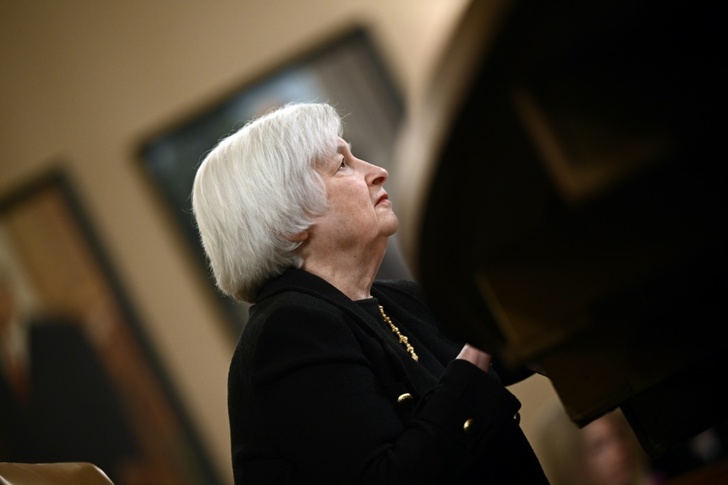US Treasury Secretary Janet Yellen on Sunday said the government wanted to avoid financial "contagion" from the implosion of the Silicon Valley Bank but ruled out a bailout of the institution.
"We want to make sure that the troubles that exist at one bank don't create contagion to others that are sound," Yellen said during an interview with CBS.
On Friday, US regulators pulled the plug on SVB -- a key lender to US startups since the 1980s -- after a run on deposits made it no longer tenable for the medium-sized bank to stay afloat on its own.
Following SVB's disclosure on Wednesday, investors punished the banking sector in total on Thursday, but by Friday, shares in some larger banks posted gains.
However, regional lenders remained under pressure, including First Republic Bank, which slumped nearly 30 percent in two sessions on Thursday and Friday, and Signature Bank, a cryptocurrency-exposed lender, which has lost a third of its value since Wednesday evening.
Yellen said on Sunday that the government was working with the US deposit guarantee agency, the FDIC, on a "resolution" of the situation at SVB, where approximately 96 percent of deposits are not covered by the FDIC's reimbursement guarantee.
"I'm sure they (the FDIC) are considering a wide range of available options that include acquisitions," she said.
Yellen said reforms made after the 2008 financial crisis meant the government was not considering a bailout for SVB.
"During the financial crisis, there were investors and owners of systemic large banks that were bailed out... and the reforms that have been put in place means that we're not going to do that again," she said.
"But we are concerned about depositors and focused on trying to meet their needs."
Following the 2008 failure of Lehman Brothers and the ensuing financial meltdown, US regulators required major banks to hold additional capital in case of trouble.
US and European authorities also organize regular "stress tests" designed to uncover vulnerabilities at the largest banks.
SVB's implosion represents not only the largest bank failure since that of Washington Mutual in 2008, but also the second largest failure ever for a retail bank in the United States.
Little known to the general public, SVB specialized in financing start-ups and had become the 16th largest US bank by assets: at the end of 2022, it had $209 billion in assets and approximately $175.4 billion in deposits.
Earlier on Sunday, Britain's finance minister Jeremy Hunt warned that the country's technology and life sciences sectors were at "serious risk" following the SVB closure, noting that the bank manages the money of some of the UK's most promising businesses.
He added, however, that the governor of the Bank of England had made it "very clear" that there was no systemic risk to the UK's financial system due to the SVB's collapse.
tu/sw/bbk
© Agence France-Presse
Your content is great. However, if any of the content contained herein violates any rights of yours, including those of copyright, please contact us immediately by e-mail at media[@]kissrpr.com.
Source: Story.KISSPR.com

